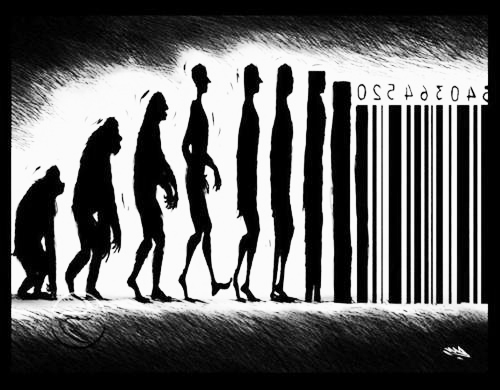This (Digital) Transformation will be Productized
The wires seemed to be clogged with article over article about whether the CMO is more powerful than the CIO in the age of digital transformation when really, there is a far more foundational issue for CEOs to deal with and that’s the role of product, and subsequently, what being a product manager entails, and the CEOs competency to design and lead a digitally-driven product organization. The bulldozer that every digitally transformative company such as Nest or AirBNB or Uber rode in on is a data-driven and networked-product DNA that promises to change the very definition of the offering. As an industry incumbent, you might have well cemented lead generation and inventory and distribution in place but here’s the thing: increasingly, the customer expects a different product.
Let’s look at the automotive industry. The real secret sauce that’s hard to replicate for a traditional auto manufacturer is not only Tesla’s electric car assembly line in Fremont, California but Tesla’s software factory in Palo Alto in Silicon Valley. Tesla product managers are looking at mounds of data coming from its analytics platform (a.k.a. the vehicle) to continuously improve the product and the experience to, in silicon valley parlance, hack its way to growth. Rob Enderle astutely points out that it’s in fact the analytics in Tesla’s manufacturing process and ownership and cultivation of the network that is its advantage:
Tesla’s use of sensor data, customer contact and analytics appears to scale even better than Apple’s. Loyalty at Apple appears to be dropping as the company’s human ambassadors, its Genus Bar employees, cycle to other jobs and are replaced by folks who are increasingly less passionate about Apple’s ever-more-common products and less tolerant of hearing the same stupid questions over and over again. Machines actually like the same question over and over again and deal with them better than people do.
and
Tesla itself runs the most active forums on its own car, which gives it a running sense of what excites and annoys customers and, in turn, gives Tesla a massive advantage over firms that don’t host or monitor forums on their cars. I frankly wonder if most auto firms have discovered the Internet.

Similarly, the Nest thermometer uses wi-fi, mobile technology and analytics emanating from networked neighborhoods to make us smarter about energy consumption. The very definition of this category of product has now moved from being an energy dial to a personal energy optimization service, thereby kicking off an intense replacement cycle in what was otherwise a sleepy industry and whose growth was at the mercy of the cyclical housing market. And Uber’s product which is really the mobile network phone app now allows rating both drivers and riders to minimize any information arbitrage that might impede the experience (a.k.a the ride) for both network participants.
The product IS the medium.
The product is at the heart of the transformation:
- The product drives awareness: Word of mouth about obviously convenient products and services that cleverly leverage innovation in analytics, mobile or “internet of things” can only be authentically told by your fanatical customers.
- The product defines your marketing campaigns: Networked end users tell you what customers love most and how their localized interests change, in near real-time.
- The product drives margin: Tesla can change the car acceleration sequence by sending the car a software update. Nest improves the product when you’re sound asleep. Contrast this with long, expensive recalls.
- The product is the up sell platform: Digital products allow built-in low friction up sell capability that drastically reduces the cost of sales.
- The product sparks the ecosystem: Developers leverage an API to build meaningful extensions to improve the experience, spawn new use cases and yes, create a 100 more reasons to buy. See how Uber is inviting all of us to improve the ride.
This is fundamentally different from how products are built and sold. And every CEO needs to take a hard look at three levers:
- The human capital ramifications of morphing the organization to a digital product mindset. Todays HR technology conversation is focused on human resource management software. This change in thinking about talent and the mindset requires anything but management of the same old, same old.
- An analytical and networked technology underpinning that focuses manically on experience and the right combination of people, data, process and content. The networked economy is officially here.
- And yes, a personal transformation to a CEO who can hire and motivate digital product leadership and exploit digitally transformative product opportunities.
You can’t just market or sell your way in or out of this coming transformation. The cheese has moved. This transformation will be productized.
(Cross-posted on LinkedIn and Medium)